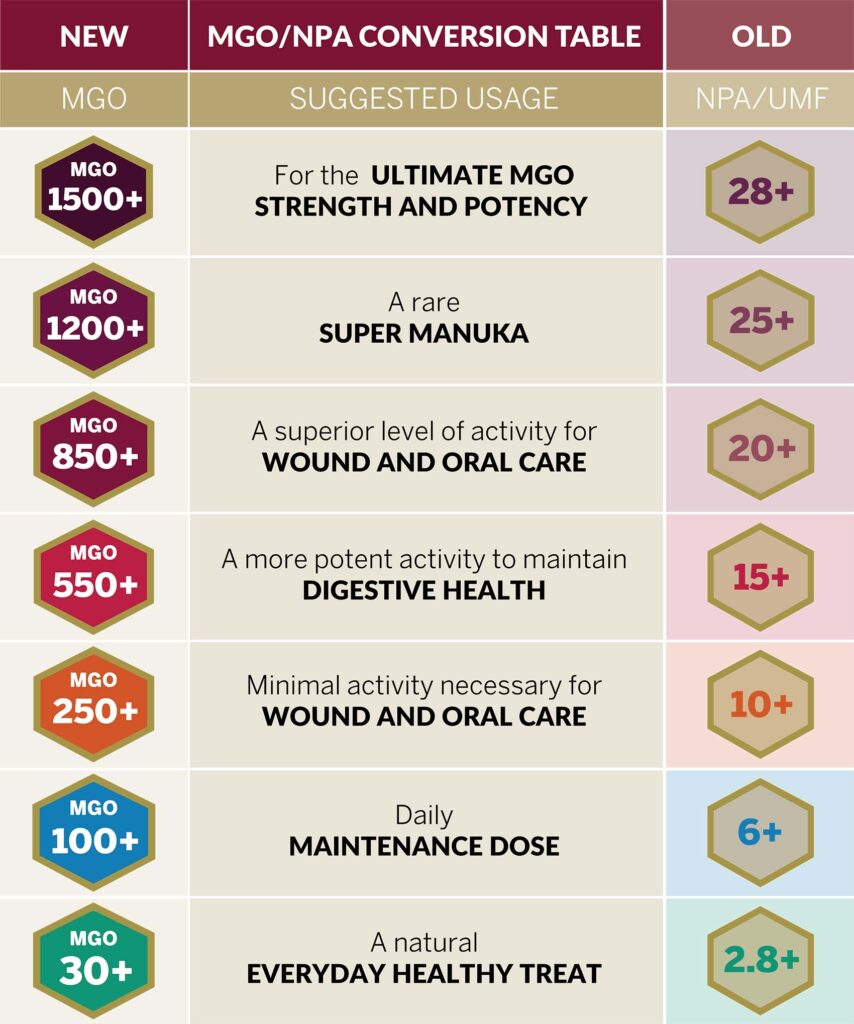
If you’re among the countless individuals struggling with acid reflux, you may be searching for a natural and effective remedy to soothe your symptoms. Look no further than the astonishing healing power of Manuka honey. Packed with potent enzymes and therapeutic qualities, this golden elixir has been recognized for its ability to calm the uncomfortable effects of acid reflux. In this article, we will explore the wonders of Manuka honey and how it can provide much-needed relief for those suffering from this common digestive ailment.
What is Manuka Honey?
Manuka honey is a unique type of honey that is native to New Zealand and is produced by bees that feed on the nectar of the Manuka bush, also known as Leptospermum scoparium. What sets Manuka honey apart from other types of honey is its high concentration of unique compounds that contribute to its therapeutic properties. These compounds are believed to have powerful antibacterial, antiviral, and anti-inflammatory effects, making Manuka honey a popular choice for various health conditions, including acid reflux.
What is acid reflux?
Before we dive into How Manuka honey can help with acid reflux, let’s first understand what acid reflux is. Acid reflux, also known as gastroesophageal reflux disease (GERD), is a condition where the stomach acid flows backward into the esophagus. This backward flow of acid can cause irritation and inflammation of the esophagus, leading to symptoms such as heartburn, chest pain, difficulty swallowing, and regurgitation.

Causes of Acid Reflux
Several factors can contribute to the development of acid reflux. One common cause is a weakened or relaxed lower esophageal sphincter (LES), which is the muscle that acts as a valve between the stomach and the esophagus. When the LES doesn’t close properly, stomach acid can reflux into the esophagus.
Other factors that can trigger or aggravate acid reflux include obesity, pregnancy, certain medications (such as NSAIDs and calcium channel blockers), smoking, and a diet high in fatty and acidic foods.
Symptoms of Acid Reflux
The symptoms of acid reflux can vary from person to person, but some common signs and symptoms include:
- Heartburn: a burning sensation in the chest, often after eating or while lying down
- Regurgitation: a sour or bitter taste in the mouth, often accompanied by the feeling of food coming back up into the throat
- Difficulty swallowing: a sensation of food getting stuck in the throat or chest
- Chest pain: a sharp or burning pain in the chest, which may mimic the symptoms of a heart attack
- Hoarseness or sore throat: caused by the irritation of stomach acid on the vocal cords
If you experience any of these symptoms regularly, it’s important to consult with your healthcare provider for an accurate diagnosis and appropriate treatment.

Conventional Treatments for Acid Reflux
Conventional treatments for acid reflux usually focus on reducing the production of stomach acid and improving the function of the LES. Commonly prescribed medications include proton pump inhibitors (PPIs), which reduce acid production, and H2 blockers, which block the action of histamine on the acid-producing cells in the stomach.
Lifestyle modifications, such as avoiding trigger foods, losing weight, elevating the head of the bed, and quitting smoking, are also recommended to help manage acid reflux symptoms.
What is Manuka Honey?
Manuka honey, as mentioned earlier, is a type of honey that is sourced from bees that feed on the nectar of the Manuka bush. What makes Manuka honey special is its high concentration of certain compounds, especially methylglyoxal (MGO), which is thought to be responsible for its unique therapeutic properties.

Active Ingredients in Manuka Honey
Manuka honey contains several active ingredients that contribute to its healing properties. Some of these include:
Methylglyoxal (MGO):
Methylglyoxal is a potent antibacterial compound that is found in high concentrations in Manuka honey. It is believed to be responsible for the honey’s antibacterial activity, making it effective against a wide range of bacteria, including Helicobacter pylori, a bacterium often associated with acid reflux.
Hydrogen Peroxide:
Manuka honey naturally produces hydrogen peroxide, a compound known for its antimicrobial properties. This compound helps to inhibit the growth of bacteria, including those that contribute to acid reflux.
Flavonoids:
Flavonoids are a group of antioxidants that have anti-inflammatory properties. Manuka honey contains various flavonoids, such as quercetin and kaempferol, which can help reduce inflammation in the esophagus caused by acid reflux.
Antibacterial Properties of Manuka Honey
One of the most well-known properties of Manuka honey is its powerful antibacterial activity. The unique combination of active ingredients in Manuka honey, particularly methylglyoxal, gives it strong antimicrobial properties. Studies have shown that Manuka honey can effectively inhibit the growth of bacteria, including strains that are resistant to antibiotics. This antibacterial activity makes Manuka honey a potential natural remedy for conditions caused by bacterial overgrowth, such as acid reflux.

Benefits of Manuka Honey for Acid Reflux
The antibacterial and anti-inflammatory properties of Manuka honey make it a promising natural remedy for managing acid reflux. Here are some potential benefits of using Manuka honey for acid reflux:
Reducing bacterial overgrowth:
The antibacterial activity of Manuka honey, particularly against Helicobacter pylori, can help reduce bacterial overgrowth in the stomach and prevent the development or worsening of acid reflux symptoms.
Soothing inflammation:
The anti-inflammatory properties of Manuka honey, specifically the flavonoids it contains, can help soothe the inflammation in the esophagus caused by acid reflux. This can provide relief from symptoms such as heartburn and chest pain.
Protecting the esophagus:
The honey’s viscosity forms a protective barrier on the lining of the esophagus, creating a barrier between the stomach acid and the delicate tissues. This barrier can help prevent further damage to the esophagus and promote its healing.
How to Use Manuka Honey for Acid Reflux
When using Manuka honey for acid reflux, it is important to choose a high-quality, authentic Manuka honey with a high concentration of active ingredients. Here are some ways you can incorporate Manuka honey into your acid reflux management:
Consuming it directly:
You can take a teaspoon of Manuka honey directly, either on its own or mixed with warm water. This can be done before meals or when experiencing symptoms of acid reflux to help soothe the irritation and reduce heartburn.
Adding it to drinks or foods:
You can also add Manuka honey to warm herbal tea, such as chamomile or ginger tea, or incorporate it into foods like oatmeal or yogurt. This can provide a more pleasant way of consuming Manuka honey while still reaping its potential benefits for acid reflux.
Consulting with a healthcare provider:
It is essential to consult with your healthcare provider before incorporating Manuka honey into your acid reflux management. They can provide personalized advice and guidance based on your specific health needs and any existing conditions or medications you may be taking.
In conclusion, Manuka honey has shown promise as a natural remedy for acid reflux due to its antibacterial and anti-inflammatory properties. It can help reduce bacterial overgrowth, soothe inflammation, and protect the esophagus from further damage. However, it is important to remember that Manuka honey should be used as a complementary approach alongside other conventional treatments and lifestyle modifications. Always consult with your healthcare provider before making any changes to your acid reflux management plan.
